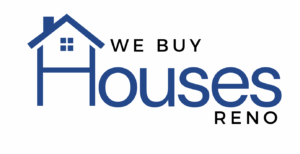Homebuying is an exciting milestone, but it can also feel overwhelming, especially when considering the financial factors involved. Your credit score is one of the most important aspects that determines which mortgage options are available to you. Different credit ranges open doors to specific types of loans, each with its own benefits and requirements. Whether your credit is excellent, average, or needs improvement, there are mortgage solutions to suit your circumstances. This guide will help you understand the best mortgage types for your credit range, empowering you to make confident decisions on your journey to homeownership.
How Your Credit Score Affects Mortgage Eligibility
Your credit score is a three-digit figure that lenders assess to determine your trustworthiness as a borrower. Typically ranging from 300 to 850, higher scores signify lower financial risk. Lenders rely heavily on this number to decide whether to approve your mortgage application and at what interest rate. A higher credit score can unlock better loan terms, such as lower interest rates and reduced down payment requirements. Knowing how lenders view your creditworthiness allows you to focus on areas to improve if needed. Monitoring your credit regularly ensures you catch any errors that could negatively affect your score.
On the other hand, lower credit scores may limit your options and lead to higher borrowing costs. Borrowers with subprime credit may need to provide additional documentation or seek alternative loan programs designed for those with lower scores. These borrowers often face higher interest rates, making monthly payments more expensive over time. Understanding where you fall in the credit spectrum is the first step to identifying the best mortgage for your situation.
- Credit: Vital factor in loan approval.
- Interest rate: Lower with higher scores.
Conventional Loans for Strong Credit Scores
Conventional loans are a popular option for borrowers with strong credit scores, typically above 680. These loans are not backed by government programs, allowing for more flexibility in terms and conditions. Borrowers with excellent credit can often secure lower interest rates, making conventional loans one of the most cost-effective choices in the long run. Lenders also tend to approve conventional loans quickly for high-credit borrowers, reducing the time needed to close the deal. These loans are especially appealing for buyers seeking competitive terms without added fees.
For those with higher credit scores, conventional loans also require smaller down payments, sometimes as low as 3%. However, private mortgage insurance (PMI) is required if you put down less than 20%. While PMI adds to your monthly expenses, it can be eliminated once you reach 20% equity in your home. With competitive rates and flexible terms, conventional loans are ideal for financially stable borrowers with a solid credit history.
- Flexibility: Conventional loans have fewer restrictions.
- Cost-effective: Lower rates reduce long-term expenses.
FHA Loans for Moderate Credit Scores
FHA loans, backed by the Federal Housing Administration, are designed to help borrowers with moderate credit scores, typically ranging from 580 to 680. These loans offer more lenient qualification requirements, such as lower credit score thresholds and smaller down payments. Borrowers can qualify with as little as 3.5% down, making it an excellent option for first-time homebuyers. The application process is also streamlined to make homeownership more accessible. FHA loans are particularly beneficial for buyers who may not meet the stricter standards of conventional loans.
Although FHA loans are accessible, they do come with added costs, such as upfront and annual mortgage insurance premiums. These fees protect the lender but add to your monthly expenses. Borrowers should account for these costs when budgeting for their home purchase to avoid surprises. However, for borrowers who need extra flexibility, FHA loans are an approachable solution that balances affordability and accessibility.
- Accessibility: Ideal for buyers with limited credit.
- Down payment: Lower, easing financial strain.
VA and USDA Loans for Special Cases
VA loans, backed by the Department of Veterans Affairs, are an outstanding option for eligible veterans, active-duty service members, and their families. These loans do not require a down payment or private mortgage insurance, and they offer competitive interest rates even for those with lower credit scores. The VA loan program also provides additional benefits, such as funding fee exemptions for certain borrowers. This program ensures that military families can achieve homeownership without unnecessary financial stress.
USDA loans are another specialized option, targeted at homebuyers in rural or suburban areas. These loans, supported by the U.S. Department of Agriculture, often require no down payment and have lenient credit score requirements. USDA loans also include subsidies that lower monthly payments for eligible buyers. While both VA and USDA loans are designed for specific groups, they provide incredible opportunities for buyers who qualify.
- VA: Tailored for military families.
- USDA: Great for rural property buyers.
Conclusion
Your credit score doesn’t have to be a roadblock to achieving your dream of homeownership. By understanding your credit range and the mortgage options available to you, you can take control of the process and find a loan that fits your needs. From conventional loans for strong credit scores to specialized programs like VA and USDA loans, there’s a solution for everyone. Even if your credit needs improvement, options like FHA loans can make homeownership a reality. The key is to explore your options, ask questions, and work with trusted professionals to unlock the door to your new home. Homeownership is within reach—start your journey today!



